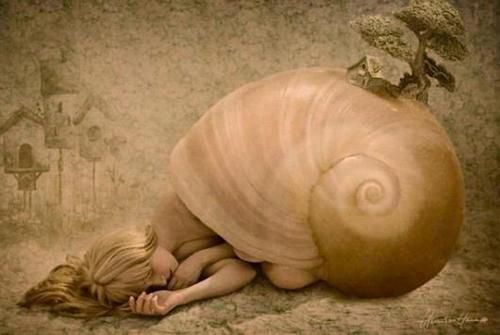Do you suddenly feel anxious or depressed and at another moment self- critical, like sabotaging yourself? Each of us has an inner child within us that was wounded at some point in time. We often ignore the inner child inside of us to avoid feeling the extreme pain. But, the child never leaves us completely. It stays in our unconscious mind and impacts our decision-making, our choices, how we retort to the challenges, in short, our life.
Our life goes through 8 developmental stages that our inner child associate with.
- Infant
- Toddler
- Pre-School
- School Child
- Adolescent
- Young Adult
- Mid Adult
- Late Adult
Each stage is attached to a basic virtue and if any of this virtue is wounded at any point in time, inner child is affected. The failure or the inability of completing a stage successfully can end in a reduced capacity to complete other stages further. This leads to a morbid personality and sense of self. These stages, where we obtain wounds from our people around, the elders and our parents, can be successfully transformed by working on inner child.
Infant
Let’s start from the beginning with the infancy stage. At infancy stage, the world is completely unknown for the baby where he/ she have taken birth into. Trust is the primary virtue at this stage. If an infant receives consistent care that is expected and dependable, a sense of trust is developed which he or she can carry along in the next stages and relationships. If the bond is strong and trust element is solidly built, the inner child doesn’t feel insecure when threatened.
Toddler
In the toddler stage, when the child is starting the journey of stepping on his own for the first time, a new phase begins. They try to roam around and explore whatever they see and wherever they move. They learn to speak and spell the name of various objects. The child comes in contact with their independent nature, which includes their ability to say ‘No’. As a parent, we should use the connect built with the child during the infancy stage to moderate their expressions and emotions to help them accept “NO” from others. With the success of TRUST virtue in the infancy stage, Toddler stage’s virtue becomes HOPE. When the infant gets into toddlerhood, he/ she has a virtue of hope that parents will always be there for support if anything goes wrong. This HOPE comes for the successful virtue of trust in the last stage and if the hope is lost for some reason then a fear starts growing within, disturbing the inner child.
Like, if the care was not consistent or if the parents were harsh to the infant, the trust virtue would have suffered. Similarly, if the built trust was hurt by the parents or the elders then, the hope for support from the parents is lost and an element of fear replaces it. For example, if a toddler is molested, they don’t know what molestation is but they just narrate what has happened and seek support from their parents. If the parents stand by the toddler, the virtue of hope successfully passes on to the next stage. But, if the parents ignore, the inner child is hurt. The incident will remain etched in the inner child’s world and affect the future stages.
Pre-School
The childhood stage is when the child gets ready to start his school. At this stage, preparing the children for school leads to rapid intellectual and physical development of the child. This also includes cooperative interaction with the peers by being a coach and offering a precise combination of support, guidance, and encouragement. As parents, it is also essential that you introduce your child to new skills and concepts by helping them with learning skills and encouraging active discussions.
At this stage, a parent must encourage the child to do things themselves. Help the child to do their own work and encourage them until they succeed instead of doing it yourself or criticizing their failure. You must aim at child’s self-control by not hurting the child’s self-esteem. The virtue at this stage is WILL. If the child fails to be successful at this stage he/ she might end up with inadequate surviving ability. The child may then become dependent on others, lack self-confidence, and doubt his/her own ability to do things. The WILL of doing something goes lacking when the inner child is hurt. If they are encouraged and motivated, they become independent, confident, and always have the sense of security to survive on their own.
SchoolChild
While toddlers and preschool children require a continuous observation and management, school children are generally much ready for independence. However, making some good choices and exercising self-discipline is not so easy. Parents must instruct and convey a moral and right code of behaviour and conduct that the child slowly and steadily internalizes. When a child struggles with the instructions, the parents must be able to show their encouragement and praise the child for achievements. At times, they must also allow the child to experience the natural consequences of their behaviour. A Parent can also offer logical consequences so that the child may learn from their mistakes. In this stage, a child interacts with their fellow mates, initiate activities, explore their interpersonal skills, and make their own decisions. If criticized they may lose their power to lead. They may feel like a nuisance and lack self-initiative skills and prefer being a follower.
The virtue at this stage is the PURPOSE. A child gains confidence and gets a purpose for doing each and everything. They might ask a number of questions at this stage, which is good. But, if the parents get irritated with the questions or retort improperly to the child, they may feel guilty. When the inner child faces too much guilt, he/she becomes slow to interact and their purpose to attain something or know something is lost.
Adolescent
At this stage, the teachers become an important part of a child’s life. They learn a range of skills. When such skills are tested, they try to accomplish all to take a sense of pride. But, when they fail and their initiative is restricted or criticized by teachers and parents, a child starts feeling inferior. Some amount of failure is good to develop modesty but if there’s no balance, it will lead to lack of competence. The inner child feels he/she is not competent enough like their other friends and so their feelings are curbed.
Young Adult, Mid Adult, Late Adult
In these stages, you can see if you are able to accept the changes that come in terms of your comfort with your body, your ability to accept the changes in terms of career, relationships, intimacy, and the success of it and more. If your inner child is wounded, the transition will become difficult in each stage. Although you will keep accepting the changes with every stage, it will not be as per your will.
Once you start working with your inner child, you start accepting the events at every stage where you were wronged. To heal your inner child completely, it is essential to successfully complete all the initial stages of one’s life and attain the virtues positively.
Programs on healing your inner child
Art of Deconditioning, Stage 1.




